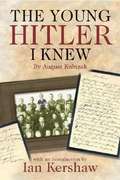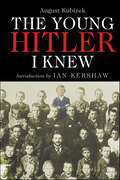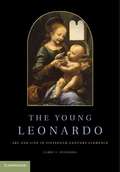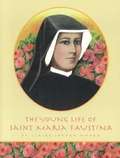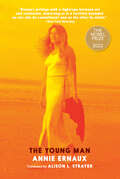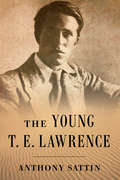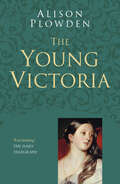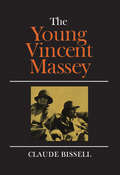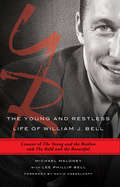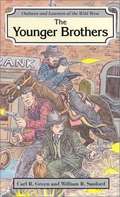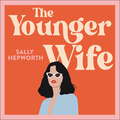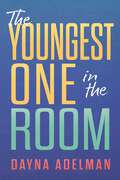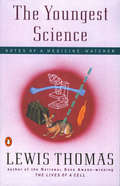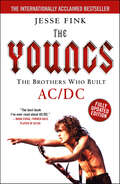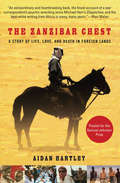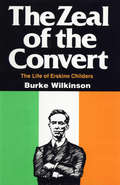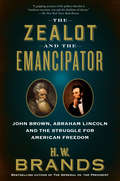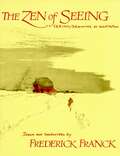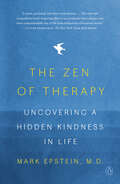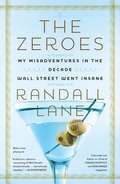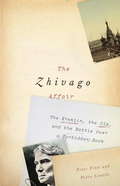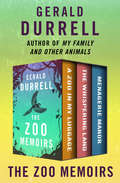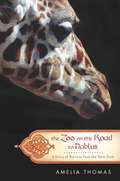- Table View
- List View
The Young Hitler I Knew
by Ian Kershaw August Kubizek Geoffrey BrooksThis is the first edition to be published in English since 1955 and it corrects many changes made for reasons of political correctness. It also includes important sections which were excised from the original English translation. August Kubizek met Adolf Hitler in 1904 while they were both competing for standing room at the opera. Their mutual passion for music created a strong bond, and over the next four years they became close friends. Kubizek describes a reticent young man, painfully shy, yet capable of bursting into hysterical fits of anger if anyone disagreed with him. The two boys would often talk for hours on end; Hitler found Kubizek to be a very good listener, a worthy confidant to his hopes and dreams. In 1908 Kubizek moved to Vienna and shared a room with Hitler at 29 Stumpergasse. During this time, Hitler tried to get into art school, but he was unsuccessful. With his money fast running out, he found himself sinking to the lower depths of the city: an unkind world of isolation and 'constant unappeasable hunger'. Hitler moved out of the flat in November, without leaving a forwarding address; Kubizek did not meet his friend again until 1938. The Young Hitler I Knew tells the story of an extraordinary friendship, and gives fascinating insight into Hitler's character during these formative years. A must for Hitler scholars.
The Young Hitler I Knew: The Memoirs of Hitler's Childhood Friend
by August KubizekAugust Kubizek met Adolf Hitler in 1904 while they were both competing for standing room at the opera. Their mutual passion for music created a strong bond, and over the next four years they became close friends. Kubizek describes a reticent young man, painfully shy, yet capable of bursting into hysterical fits of anger if anyone disagreed with him. The two boys would often talk for hours on end; Hitler found Kubizek to be a very good listener, a worthy confidant to his hopes and dreams. In 1908 Kubizek moved to Vienna and shared a room with Hitler at 29 Stumpergasse. During this time, Hitler tried to get into art school, but he was unsuccessful. With his money fast running out, he found himself sinking to the lower depths of the city: an unkind world of isolation and constant unappeasable hunger. Hitler moved out of the flat in November, without leaving a forwarding address; Kubizek did not meet his friend again until 1938. The Young Hitler I Knew tells the story of an extraordinary friendship, and gives fascinating insight into Hitler's character during these formative years. This is the first edition to be published in English since 1955 and it corrects many changes made for reasons of political correctness. It also includes important sections which were excised from the original English translation.
The Young Leonardo: Art and Life in Fifteenth-century Florence
by Larry J. FeinbergLeonardo da Vinci is often presented as the 'transcendent genius', removed from or ahead of his time. This book, however, attempts to understand him in the context of Renaissance Florence. Larry J. Feinberg explores Leonardo's origins and the beginning of his career as an artist. While celebrating his many artistic achievements, the book illuminates his debt to other artists' works and his struggles to gain and retain patronage, as well as his career and personal difficulties. Feinberg examines the range of Leonardo's interests, including aerodynamics, anatomy, astronomy, botany, geology, hydraulics, optics and warfare technology, to clarify how the artist's broad intellectual curiosity informed his art. Situating the artist within the political, social, cultural and artistic context of mid- and late-fifteenth-century Florence, Feinberg shows how this environment influenced Leonardo's artistic output and laid the groundwork for the achievements of his mature works.
The Young Life of Sister Faustina
by Claire Jordan MohanThe book explores the early life of Sister Faustina, a worldwide known apostle of Divine Mercy and one of the greatest mystics of the Church, who had her first calling to religious life at the age of 7.
The Young Man
by Annie ErnauxWINNER OF THE 2022 NOBEL PRIZE IN LITERATUREAnnie Ernaux's most recent book, dazzling and breathtaking, published in France in 2022, is about her affair with a man 30 years her junior.&“A sublime book.&” —Elle&“Once again the work of the writer Annie Ernaux appears as both a rigorous study of life and an experiment. These fragments of living, however evanescent, are precious, irreplaceable, like a skin that never fades.&” —Caroline Montpetit in Le DevoirThe Young Man is Annie Ernaux&’s account of her passionate love affair with A., a man some 30 years younger, when she was in her fifties. The relationship pulls her back to memories of her own youth and at the same time leaves her feeling ageless, outside of time— together with a sense that she is living her life backwards.Amidst talk of having a child together, she feels time running its course, and menopause approaching. The Young Man recalls Ernaux as the &“scandalous girl&” she once was, but is composed with the mastery and the self-assurance she has achieved across decades of writing. It was first published in France in 2022.
The Young T. E. Lawrence
by Anthony SattinAn intimate biography of the years that turned T. E. Lawrence into Lawrence of Arabia. Lawrence of Arabia's heroism during the Arab revolt and his disgust at the subsequent betrayal of the Arabs in the postwar negotiations have become the stuff of legend. But T. E. Lawrence's adventures in the Levant began long before the outbreak of war. This intimate biography is the first to focus on Lawrence in his twenties, the untold story of the awkward archaeologist from Oxford who, on first visiting "The East," fell in love with Arab culture and found his life's mission. Few people realize that Lawrence's classic autobiography, Seven Pillars of Wisdom, was not the first book to carry that iconic title. Lawrence himself burned his original draft. Anthony Sattin here uncovers the story Lawrence wanted to conceal: the truth of his birth, his tortuous relationship with a dominant mother, his deep affection for an Arab boy, and the personal reasons that drove him from student to spy. Drawing on surviving letters, diaries, and accounts from close confidantes, Sattin brings a biographer's eye for detail and a travel writer's verve to Lawrence's extraordinary journeys through the region with which his name is forever connected. In a masterful parallel narrative, The Young T. E. Lawrence charts the maturation of the man and the incipient countries he treasured, both coming of age at a time when the world's foundations were coming undone.
The Young Victoria: Classic Histories Series (Classic Histories Series)
by Alison Plowden'I delight in this work', wrote the young Victoria shortly after she became Queen. She was an engaging creature, high-spirited and eager to be 'amused'. But her early years were difficult ones. Fatherless from the age of eight months, she was brought up at Kensington Palace in an atmosphere thick with family feuds, backbiting and jealousy - the focus of conflicting ambitions. Though her uncle William IV was anxious to bring her into Court circles, her German mother and the calculating John Conroy were equally determined that she should remain under their control. The 'little Queen', who succeeded to the throne a month after her eighteenth birthday, was greeted by a unanimous chorus of praise and admiration. She embraced the independence of her position and often forced her will on those around her. She met and married Albert, marking the end of her childhood and the beginning of a glorious legend. Alison Plowden was one of the most successful and popular historians of British history. Her bestselling books include: The House of Tudor, The Young Elizabeth, Lady Jane Grey and Danger to Elizabeth, all of which are available from The History Press.
The Young Vincent Massey
by Claude BissellFor Vincent Massey, youth was a period of protest and emerging public fame. He broke with his strong family traditions of Methodist piety and American ties. He became known as a patron of the arts, innovator, politician, and diplomat.This volume begins with his prosperous Victorian childhood and carries through days as a student and wartime officer. He plans Hart House, which becomes a cultural centre. Promised a cabinet post, he runs for Parliament and is defeated. Instead, he is sent to Washington as Canada's first minister there, and achieves brilliant success. He is prominent in educational circles; he helps to reorganize the Liberal party, presses for progressive policies, and flirts with the idea of replacing Mackenzie King.The book ends in 1935 as he sails to London as his country's high commissioner. He considers it his first major job. In between he writes poetry--usually light, sometimes venom-tipped. He acts, and directs plays. He sponsors a string quartet of international stature. He marries Alice Parkin, a handsome woman of strong convictions, and with her builds a country home near Port Hope, Ontario. He becomes a leading collector of modern Canadian art, and is involved with the painter David Milne. The book is as well a history of the people and ideas which influenced the young Massey--family, teachers, friends, associates. One chapter is given to his relations with Mackenzie King--each of them convinced of his own rightness but separated by fundamental differences, loud in protestations of friendship but nourishing an inner contempt for one another.Claude Bissell has built this complex and absorbing portrait from the unpublished papers of Vincent Massey and members of his circle, diaries of King and other politicians, memories of artists and musicians.He writes with vigour and elegance, quoting extensively from private records and letters, coining epigrams of his own. His portrait is sympathetic but not uncritical, with plenty of scope for the reader to make his own judgements.This is the first of two volumes about one of Canada's best known and least understood figures--statesman, cultural advocate, patron, family man, and first native governor-general.
The Young and Restless Life of William J. Bell
by Michael Maloney Lee Phillip Bell"Michael Maloney has complied an impressive amount f details into an entertaining and fast-moving book. Read this book if you want a fascinating insight into one of television's original show runners and the legacy he left behind."--Cady McClain, Emmy-winning actress, All My Children and As the World Turns "A tribute to the man who brought daytime's most memorable characters to life, with great insight into his passion for the genre and dedication to his family."--Angelica McDaniel, senior vice president, Daytime, CBS Entertainment "The carefully selected photographs alone are worth this beguiling trip down memory lane."--Lynette Rice, Entertainment Weekly "An informed, insightful look at the inner workings of the Bell Empire--the most successful dynasty in daytime television history. It's a great read."--Peter Bergman, three-time Emmy-winning actor, The Young and the Restless Millions of fans worldwide know his soap opera and his characters, but few know the story of the man who brought them to life. William J. Bell, television's most prolific writer, reinvented the soap opera genre with his groundbreaking serial The Young and the Restless in 1973 and went on to co-create The Bold and the Beautiful with his wife and successful TV host Lee Phillip Bell, which debuted in 1987. The Young and Restless Life of William J. Bell tells the inside story of daytime's greatest storyteller, including his role as an advertising executive in the era of Mad Men, working for legendary serial creator Irna Phillips, and his move from Chicago to Los Angeles, which resulted in Y&R taking the top spot in the rating. This book offers an unprecedented look into the life of the man who defined the soap genre and draws readers behind the scenes into the captivating world of the daytime soap they know and love.
The Younger Brothers (Outlaws and Lawmen of the Wild West)
by Carl R. Green William R. SanfordBiographies of famous and infamous men of the Western frontier. Entices the reluctant reader to relive the exciting days of the Wild West.
The Younger Wife: An unputdownable new domestic drama with jaw-dropping twists
by Sally Hepworth'Smart, suspenseful, brimming with secrets.' KATE MORTON The moment she laid eyes on Heather Wisher, Tully knew this woman was going to destroy their lives. Tully and Rachel Aston are murderous when they discover their father has a new girlfriend. The fact that Heather is half his age isn't even the most shocking part. Stephen is still married to their mother, who is in a care facility with end-stage Alzheimer's disease. Announcing his plan to divorce and then remarry, the news of Stephen and Heather's engagement sets a chain a family implosion. With their mother unable to speak for herself, Tully and Rachel are determined to get to the truth about their family's secrets and what this new woman really wants. Heather knows she has an uphill battle to win over Tully and Rachel, all the while carrying the burden of the secrets of her past. But, as it turns out, they are all hiding something. A garage full of stolen goods. An old hot-water bottle stuffed with cash. A blood-soaked wedding. And that's only the beginning . . . PRAISE FOR SALLY'S NOVELS: 'Completely compulsive' JANE HARPER 'Women's fiction at its finest' LIANE MORIARTY 'Clever, chilling and beautifully crafted' ADELE PARKS 'Sally demonstrates that you don't need outlandish situations and monstrous characters to write a thoroughly engrossing, suspenseful thriller, and her writing feels so effortless' EMMA CURTIS 'Cleverly plotted and completely compelling' NICOLA MORIARTY(P) 2022 Hodder & Stoughton Limited
The Youngest One in the Room
by Dayna AdelmanWhat does Forrest Gump have in common with each of us? A life of unplanned yet meaningful escapades.At least, that is what Dayna Adelman believes. In her literary debut, Dayna takes you on a behind-the-scenes journey through the first decade of her career—as the youngest one in the [board] room. She showers us with personal anecdotes and adventures as she distills her lessons learned along the way—all while living Gump&’s mantra: &“Life is like a box of chocolates. You never know what you&’re gonna get.&” We first meet Dayna as a twenty-something straight out of college—in the waning days of the global financial crisis, and the book comes to a conclusion when she is a thirty-something—during the height of the COVID-19 pandemic. Dayna regales her readers while meandering through a significantly defining decade—from the entry-level days at a New York City-based communications consultancy through her rise as a corporate affairs professional at a multinational corporation. Whether you are just entering the workforce, in a place of professional transition, or looking to understand the past to define the future, Dayna&’s human approach to sharing her lessons inside and outside the boardroom—while revealing both the joy and pain of the self-discovery process along the way—will resonate with you. Be forewarned: this book does not contain a magic list of what you &“should do&” to achieve success. Rather, this is one young professional&’s personal account shared in the hope that readers will feel inspired to continue seeking their own fulfilling adventures.
The Youngest Science: Notes of a Medicine-Watcher
by Lewis ThomasFrom the 1920s when he watched his father, a general practitioner who made house calls and wrote his prescriptions in Latin, to his days in medical school and beyond, Lewis Thomas saw medicine evolve from an art into a sophisticated science.
The Youngest Science: Notes of a Medicine-Watcher
by Lewis ThomasFrom the 1920s when he watched his father, a general practitioner who made housecalls and wrote his prescriptions in Latin, to his days in medical school and beyond, Lewis Thomas saw medicine evolve from an art into a sophisticated science. The Youngest Science is Dr. Thomas's account of his life in the medical profession and an inquiry into what medicine is all about--the youngest science, but one rich in possibility and promise.He chronicles his training in Boston and New York, his war career in the South Pacific, his most impassioned research projects, his work as an administrator in hospitals and medical schools, and even his experiences as a patient. Along the way, Thomas explores the complex relationships between research and practice, between words and meanings, between human error and human accomplishment, More than a magnificent autobiography, The Youngest Science is also a celebration and a warning--about the nature of medicine and about the future life of our planet.
The Youngs: The Brothers Who Built AC/DC
by Jesse FinkThe Youngs: The Brothers Who Built AC/DC is unlike any AC/DC book you've read before. Less a biography, more a critical appreciation, it tells the story of the trio through 11 classic rock songs and reveals some of the personal and creative secrets that went into their making.Important figures from AC/DC's long way to the top open up for the very first time, while unsung heroes behind the band's success are given the credit they are due. Accepted accounts of events are challenged while sensational new details emerge to cast a whole new light on the band's history—especially their early years with Atlantic Records in the United States. Former AC/DC members and musicians from bands such as Guns N' Roses, Dropkick Murphys, Airbourne and Rose Tattoo also give their take on the Youngs' brand of magic.Their music has never pulled its punches. Neither does The Youngs. After 40 years, AC/DC might just have gotten the serious book it deserves.
The Zanzibar Chest: A Story of Life, Love, and Death in Foreign Lands
by Aidan HartleyAn examination of colonialism and its consequences. “A sweeping, poetic homage to Africa, a continent made vivid by Hartley’s capable, stunning prose” (Publishers Weekly). In his final days, Aidan Hartley’s father said to him, “We should have never come.” Those words spoke of a colonial legacy that stretched back through four generations of one British family. From a great-great-grandfather who defended British settlements in nineteenth-century New Zealand, to his father, a colonial officer sent to Africa in the 1920s and who later returned to raise a family there—these were intrepid men who traveled to exotic lands to conquer, build, and bear witness. And there was Aidan, who became a journalist covering Africa in the 1990s, a decade marked by terror and genocide. After encountering the violence in Somalia, Uganda, and Rwanda, Aidan retreated to his family’s house in Kenya where he discovered the Zanzibar chest his father left him. Intricately hand-carved, the chest contained the diaries of his father’s best friend, Peter Davey, an Englishman who had died under obscure circumstances five decades before. With the papers as his guide, Hartley embarked on a journey not only to unlock the secrets of Davey’s life, but his own. “The finest account of a war correspondent’s psychic wracking since Michael Herr’s Dispatches.” —Rian Malan, author of My Traitor’s Heart
The Zeal of the Convert: The Life of Erskine Childers
by Burke Wilkinson"Erskine Childers, one of the unsung heroes of Ireland's struggle for independence, was born in England, spent his boyhood in Ireland, then went to Cambridge University. He fought for England in the Boer War and as an aviator in World War I, publishing his widely praised novel The Riddle of the Sands in 1903. He became involved in Irish politics in 1908 as an advocate of home rule, smuggled guns to Irish liberationists, and in 1919 joined Sinn Fein, the extreme wing of the freedom fighters. His martyrdom is stirringly related by Wilkinson". -- Publishers Weekly
The Zealot and the Emancipator: John Brown, Abraham Lincoln, and the Struggle for American Freedom
by H. W. BrandsGifted storyteller and bestselling historian H. W. Brands narrates the epic struggle over slavery as embodied by John Brown and Abraham Lincoln—two men moved to radically different acts to confront our nation’s gravest sin. <P><P>John Brown was a charismatic and deeply religious man who heard the God of the Old Testament speaking to him, telling him to destroy slavery by any means. When Congress opened Kansas territory to slavery in 1854, Brown raised a band of followers to wage war. His men tore pro-slavery settlers from their homes and hacked them to death with broadswords. Three years later, Brown and his men assaulted the federal arsenal at Harpers Ferry, Virginia, hoping to arm slaves with weapons for a race war that would cleanse the nation of slavery. <P><P>Brown’s violence pointed ambitious Illinois lawyer and former officeholder Abraham Lincoln toward a different solution to slavery: politics. Lincoln spoke cautiously and dreamed big, plotting his path back to Washington and perhaps to the White House. Yet his caution could not protect him from the vortex of violence Brown had set in motion. <P><P>After Brown’s arrest, his righteous dignity on the way to the gallows led many in the North to see him as a martyr to liberty. Southerners responded with anger and horror to a terrorist being made into a saint. Lincoln shrewdly threaded the needle between the opposing voices of the fractured nation and won election as president. <P><P>But the time for moderation had passed, and Lincoln’s fervent belief that democracy could resolve its moral crises peacefully faced its ultimate test. The Zealot and the Emancipator is acclaimed historian H. W. Brand’s thrilling and page-turning account of how two American giants shaped the war for freedom.
The Zen of Seeing: Seeing/Drawing as Meditation
by Frederick FranckSeeing/Drawing is spiritual discipline, a "Zen method" admirably suited to the active temperament, and a way of contemplation by which all things are made new, by which the world is freshly experienced at each moment. <p><p> A renown Dutch artist offers his concept of seeing and drawing as a discipline by which the world may be rediscovered, a way of experiencing Zen. Drawn and handwritten by Frederick Franck
The Zen of Therapy: Uncovering a Hidden Kindness in Life
by Mark EpsteinA remarkable exploration of the therapeutic relationship, Dr. Mark Epstein reflects on one year&’s worth of therapy sessions with his patients to observe how his training in Western psychotherapy and his equally long investigation into Buddhism, in tandem, led to greater awareness—for his patients, and for himself For years, Dr. Mark Epstein kept his beliefs as a Buddhist separate from his work as a psychiatrist. Content to use his training in mindfulness as a private resource, he trusted that the Buddhist influence could, and should, remain invisible. But as he became more forthcoming with his patients about his personal spiritual leanings, he was surprised to learn how many were eager to learn more. The divisions between the psychological, emotional, and the spiritual, he soon realized, were not as distinct as one might think. In The Zen of Therapy, Dr. Epstein reflects on a year&’s worth of selected sessions with his patients and observes how, in the incidental details of a given hour, his Buddhist background influences the way he works. Meditation and psychotherapy each encourage a willingness to face life's difficulties with courage that can be hard to otherwise muster, and in this cross-section of life in his office, he emphasizes how therapy, an element of Western medicine, can in fact be considered a two-person meditation. Mindfulness, too, much like a good therapist, can &“hold&” our awareness for us—and allow us to come to our senses and find inner peace. Throughout this deeply personal inquiry, one which weaves together the wisdom of two worlds, Dr. Epstein illuminates the therapy relationship as spiritual friendship, and reveals how a therapist can help patients cultivate the sense that there is something magical, something wonderful, and something to trust running through our lives, no matter how fraught they have been or might become. For when we realize how readily we have misinterpreted our selves, when we stop clinging to our falsely conceived constructs, when we touch the ground of being, we come home.
The Zeroes
by Randall LaneWhat Liar's Poker was to the 1980s, The Zeroes is to the first decade of the new century: an insider's memoir of a gilded era when Wall Street went insane-and took the rest of us down with it. Randall Lane never set out to become a Wall Street power broker. But during the decade he calls the Zeroes, he started a small magazine company that put him near the white-hot center of the biggest boom in history. Almost by accident, a man who drove a beat-up Subaru and lived in a rented walk-up became the go-to guy for big shots with nine-figure incomes. Lane's saga began with a simple idea: a glossy magazine exclusively for and about traders, which would treat them like rock stars and entice them to splurge on luxury goods. Trader Monthly was an instant hit around the world. Wall Streeters loved the spotlight, and advertisers like Gulfstream, Maybach, and Bulgari loved the marketing opportunity. To accelerate the buzz, Lane's staff threw parties featuring celebrities, premium steaks, cigars, and top-shelf vodka. Nothing was too expensive or too outrageous. Private jets in Napa Valley. Casino nights in London. And $1,000-a- seat boxing matches in New York, where traders from Goldman Sachs and Bear Stearns pounded each other in front of tuxedoed throngs. Before long, Wall Street's rich and powerful trusted Lane as a fellow insider- the guy who could turn an anonymous trader into a cover model and media darling. And the rest of the world sought him out as a way to tap into Wall Street's riches. As he emptied his bank account to help keep his little company afloat, he became a nexus for the absurd. Traders who turned 9/11 and Hurricane Katrina into multimillion-dollar windfalls. John McCain closing out the craps tables during an all-night gambling binge. Pop artist Peter Max hustling hundreds of thousands of dollars by selling traders paint-by-numbers portraits. Al Gore, John Travolta, Moby. Corrupt Caribbean rulers, the mobsters from Goodfellas, the pope. And a retired baseball star turned market guru named Lenny Dykstra, whose rise and fall was a great metaphor for the decade. All played roles in Lane's increasingly surreal world. When the crash of 2008 hit, Lane's company and life savings were destroyed along with the high-flying traders and dealmakers his magazines exalted. But Lane walked away with something more lasting: an incredible true story, told by a skilled writer and reporter who sat squarely in the middle of one of the critical periods in modern financial and cultural history. People will turn to The Zeroes for many years to come, to find out what the era was really like.
The Zhivago Affair: The Kremlin, the CIA, and the Battle Over a Forbidden Book
by Peter Finn Petra CouvéeDrawing on newly declassified government files, this is the dramatic story of how a forbidden book in the Soviet Union became a secret CIA weapon in the ideological battle between East and West. In May 1956, an Italian publishing scout took a train to a village just outside Moscow to visit Russia's greatest living poet, Boris Pasternak. He left carrying the original manuscript of Pasternak's first and only novel, entrusted to him with these words: "This is Doctor Zhivago. May it make its way around the world." Pasternak believed his novel was unlikely ever to be published in the Soviet Union, where the authorities regarded it as an irredeemable assault on the 1917 Revolution. But he thought it stood a chance in the West and, indeed, beginning in Italy, Doctor Zhivago was widely published in translation throughout the world. From there the life of this extraordinary book entered the realm of the spy novel. The CIA, which recognized that the Cold War was above all an ideological battle, published a Russian-language edition of Doctor Zhivago and smuggled it into the Soviet Union. Copies were devoured in Moscow and Leningrad, sold on the black market, and passed surreptitiously from friend to friend. Pasternak's funeral in 1960 was attended by thousands of admirers who defied their government to bid him farewell. The example he set launched the great tradition of the writer-dissident in the Soviet Union. In The Zhivago Affair, Peter Finn and Petra Couvée bring us intimately close to this charming, passionate, and complex artist. First to obtain CIA files providing concrete proof of the agency's involvement, the authors give us a literary thriller that takes us back to a fascinating period of the Cold War--to a time when literature had the power to stir the world.(With 8 pages of black-and-white illustrations.)From the Hardcover edition.
The Zoo Memoirs: A Zoo in My Luggage, The Whispering Land, and Menagerie Manor (The Zoo Memoirs #3)
by Gerald DurrellThe British naturalist and bestselling author of the Corfu Trilogy—the inspiration for the Masterpiece production The Durrells in Corfu—founds a zoo. In this trio of delightful memoirs, British wildlife preservation pioneer and national bestselling author Gerald Durrell recounts the ups and downs he faces in transforming his lifelong dream of creating a new kind of zoo into a reality. A Zoo in My Luggage: In 1957, Durrell and his wife travel to the British Cameroons in West Africa to begin assembling his menagerie. The greater challenge proves to be in safely transporting their exotic animals back to Britain and finding a home for them. &“Animals come close to being Durrell&’s best friends. . . . He writes about them with style, verve, and humor.&” —Time The Whispering Land: On an eight-month journey in South America to expand his menagerie, Durrell and his wife travel across windswept Patagonian shores and through tropical forests in the Argentine, encountering fur seals, ocelots, penguins, parrots, pumas, and more. &“An amusing writer who transforms this Argentine backcountry into a particularly inviting place.&” —San Francisco Chronicle Menagerie Manor: In 1959, on the grounds of an old manor house on the Channel Island of Jersey, Durrell finally opens the Jersey Zoo—now known as the Durrell Wildlife Park. Along with the satisfaction of providing a safe habitat for rare and endangered species come the trials of operating a fledgling zoo, including overdrawn bank accounts and escaped animals. &“No one can be funnier than Mr. Durrell in relating his own adventures or the antics of the claw and paw set.&” —The Christian Science Monitor
The Zoo on the Road to Nablus: A Story of Survival from the West Bank
by Amelia ThomasThe last Palestinian zoo stands on a dusty, dead-end street in the once prosperous farming town of Qalqilya, on the very edge of the West Bank. The zoo's bars are rusting; peacocks wander quiet avenues shaded by broad plane trees; a teenage baboon broods in solitary confinement; walls bear the pockmarks of gunfire. And yet the zoo is an extraordinary place, with a bizarre, troubling and inspiring story to tell. At the center of this story is Dr. Sami Khader, the only zoo veterinarian in the Palestinian territories. Family man, amateur inventor, and dedicated taxidermist, he is fiercely independent, apolitical, and resourceful in times of crisis. Dr. Sami dreams of transforming the zoo into one of an international caliber. In The Zoo on the Road to Nablus, Amelia Thomas brings the reader into a world rarely glimpsed from the outside, weaving the stories of the zoo's animals, its staff, and its visitors into a rich, colorful chronicle of the indomitability of the human-and animal-spirit.
